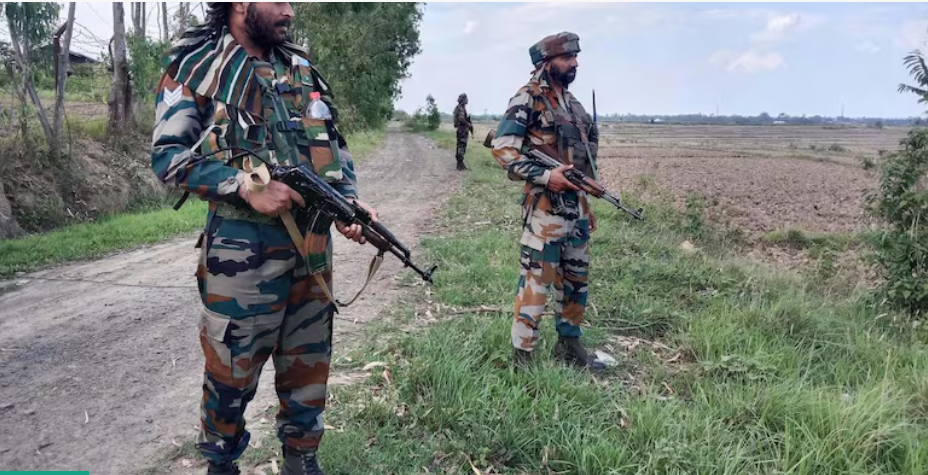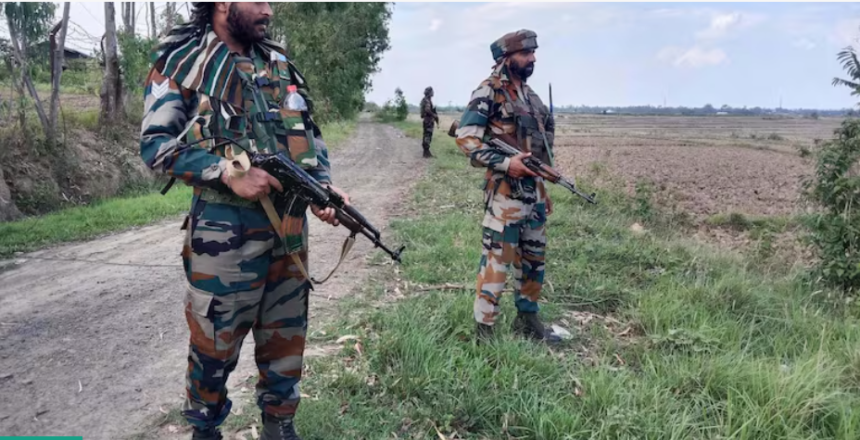16 Army Personnel Booked for Attacking Police Station:-
In a dramatic and unprecedented event, 16 Indian Army personnel have been booked for attacking a police station and assaulting police officers in Kupwara, a district in the Union Territory of Jammu and Kashmir. This incident, which has sent shockwaves through the region, highlights the complex and often tense relationship between different branches of the security forces in areas prone to conflict. The altercation underscores the need for improved communication, cooperation, and respect among the various security agencies operating in this sensitive and volatile region.
The Incident: Unraveling the Clash
The incident occurred late at night when a group of army personnel reportedly stormed the police station in Kupwara. According to eyewitnesses and official statements, the soldiers, some of whom were allegedly under the influence of alcohol, forced their way into the station, leading to a violent confrontation with the on-duty police officers.
The altercation quickly escalated, resulting in several police personnel being physically assaulted. Reports indicate that the soldiers damaged property within the police station, including smashing windows and furniture. The situation was only brought under control after senior officers from both the army and police intervened, diffusing the immediate tension and preventing further violence.
The Aftermath: Legal and Disciplinary Actions
In the wake of the incident, the local police authorities filed a formal complaint against the 16 army personnel involved, leading to their booking under various charges, including assault, criminal trespass, and destruction of public property. The registration of this case marks a significant move, reflecting the severity of the incident and the determination of the police to seek justice for the assaulted officers.
The Indian Army has also taken serious note of the incident, initiating a parallel inquiry to ascertain the facts and hold the responsible personnel accountable. This dual approach – with both civil and military investigations – aims to ensure a comprehensive understanding of the events and appropriate disciplinary measures,  for more information click on this link
for more information click on this link
Understanding the Background: Tensions and Cooperation
Kupwara, located near the Line of Control (LoC), is a strategically important district that has witnessed frequent cross-border skirmishes and militant activities. The region’s security environment necessitates the presence of multiple security agencies, including the Indian Army, Central Reserve Police Force (CRPF), and Jammu and Kashmir Police. While these agencies generally cooperate to maintain peace and security, underlying tensions and occasional conflicts are not uncommon.
The pressures of operating in a high-stress environment, coupled with jurisdictional overlaps and occasional misunderstandings, can strain relationships between the different security forces. Incidents like the one in Kupwara are a stark reminder of the challenges faced in maintaining harmony and effective collaboration among these forces.
The Impact on Civil-Military Relations
The Kupwara incident has significant implications for civil-military relations in the region. Such altercations can erode trust between the armed forces and local law enforcement, potentially undermining the overall security framework. This incident, being highly publicized, also risks damaging the public perception of both the army and the police, who are seen as guardians of safety and security.
Ensuring that this incident does not escalate into a broader rift requires swift and transparent handling of the investigation and subsequent actions. Both the army and police leadership must work together to restore trust and demonstrate a united front committed to the rule of law and mutual respect.
Reactions from Authorities and the Public
The incident has elicited strong reactions from various quarters. Senior officials in the police force have condemned the attack, calling for strict action against the perpetrators to uphold the integrity of the law enforcement agencies. They emphasize the importance of accountability and the need to protect police personnel from such violent encounters.
On the other hand, the army has expressed regret over the incident, assuring full cooperation with the ongoing investigations and stressing that the actions of a few individuals should not tarnish the image of the entire force. Army officials have reiterated their commitment to maintaining discipline and ensuring that such incidents are not repeated.
Public opinion is divided, with many expressing shock and dismay at the incident. Residents of Kupwara, who rely on both the army and police for their safety, are particularly concerned about the implications of this clash on their day-to-day security. Civic leaders and co
Broader Implications: Securitymmunity representatives have called for calm and urged both forces to resolve their differences amicably. and Governance
The Kupwara incident also sheds light on broader issues related to security and governance in conflict-prone areas. Effective security management in regions like Jammu and Kashmir requires seamless coordination and collaboration among various security agencies. Incidents of inter-agency conflict can severely hamper operational efficiency and compromise the overall security architecture.
This incident underscores the need for robust mechanisms to manage and resolve conflicts between different security forces. Establishing clear protocols for communication, joint operations, and conflict resolution can help prevent such altercations. Regular joint training programs and team-building exercises can also foster better understanding and camaraderie among personnel from different agencies.
Moving Forward: Lessons and Recommendations
To prevent future incidents and ensure harmonious functioning of security forces in sensitive areas, several steps can be taken:
- Improved Communication Channels: Establishing dedicated communication channels between different security forces can help in quickly resolving misunderstandings and coordinating responses to incidents.
- Joint Training Programs: Regular joint training sessions can foster better teamwork and understanding among personnel from different agencies. These programs should emphasize respect for each other’s roles and responsibilities.
- Clear Jurisdictional Boundaries: Defining and respecting the jurisdictional boundaries of each security force can help in avoiding conflicts. Clear protocols for handling overlapping responsibilities should be established.
- Conflict Resolution Mechanisms: Setting up mechanisms for the timely and impartial resolution of conflicts between security forces can prevent the escalation of disputes. This could include joint review boards or mediation panels.
- Leadership Involvement: Senior leaders from both the army and police should regularly engage with each other to discuss operational challenges and reinforce the importance of cooperation and mutual respect.
- Community Engagement: Involving the local community in security efforts and ensuring their confidence in the security apparatus can help in creating a more stable and secure environment. Community liaison officers can play a pivotal role in this regard.
Conclusion: A Call for Unity and Cooperation
The attack on the police station in Kupwara by army personnel is a deeply troubling incident that highlights the complexities and challenges of maintaining security in conflict-prone areas. While the incident has caused significant concern, it also presents an opportunity for introspection and improvement.
By taking concrete steps to address the underlying issues and promote better cooperation between security forces, it is possible to prevent such incidents in the future. The leadership of both the Indian Army and the Jammu and Kashmir Police must work together to rebuild trust, reinforce discipline, and ensure that their personnel are committed to the common goal of maintaining peace and security.
Ultimately, the safety and well-being of the people of Jammu and Kashmir depend on the effective and harmonious functioning of all security agencies. It is imperative that lessons are learned from the Kupwara incident and that proactive measures are taken to foster a culture of mutual respect, cooperation, and professionalism among all those entrusted with the region’s security. ALSO READ:- ANC Faces Major Setback as South Africa Heads to Watershed Election 2024





